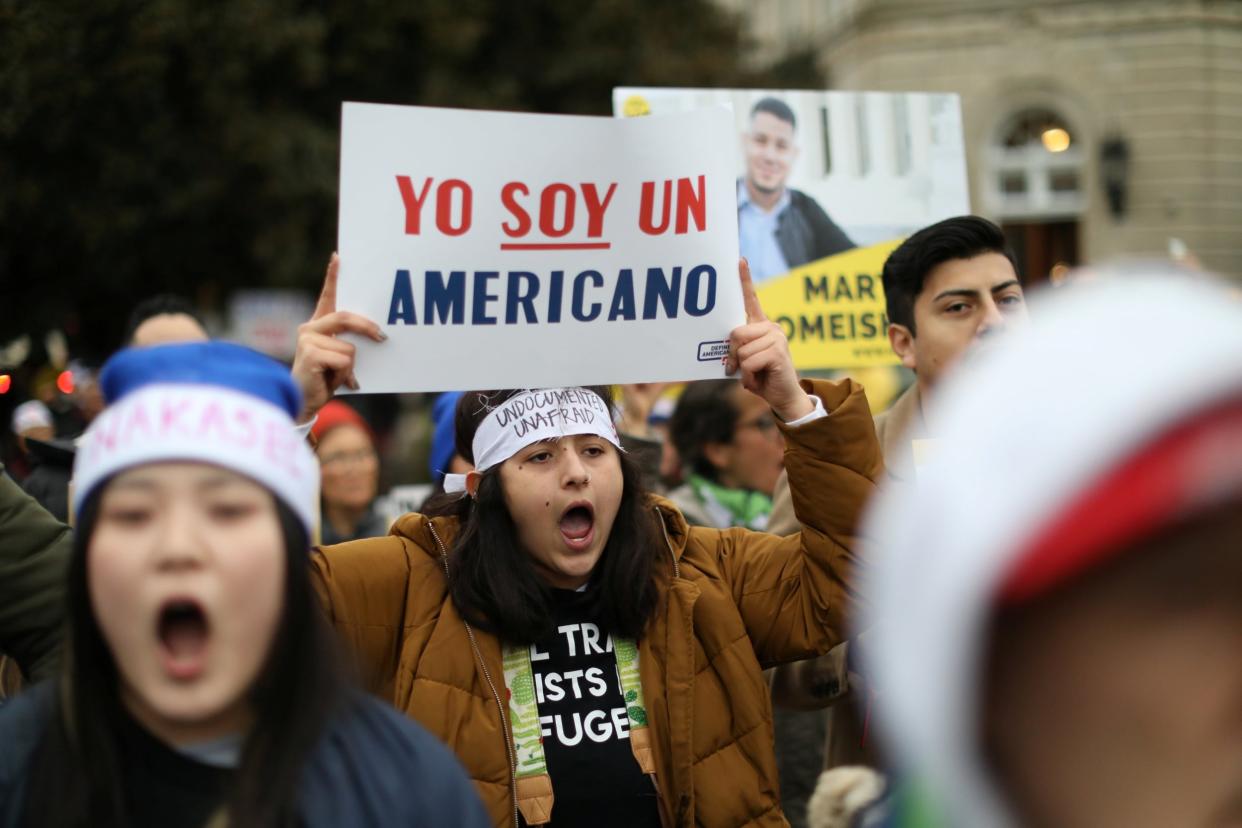Trump falsely claims DACA recipients are 'hardened criminals' just as Supreme Court begins hearings

Donald Trump has spread false claims about immigrants receiving deportation protections under the Deferred Acton for Childhood Arrivals (DACA) programme as the Supreme Court begins hearing arguments over the programme created by Barack Obama.
“Many of the people in DACA, no longer very young, are far from ‘angels’,” the president tweeted. “Some are very tough, hardened criminals.”
Recipients of DACA were brought to the US as children and must follow a strict set of guidelines in order to receive protection from deportation. For example, a recipient cannot qualify for the programme if they have been convicted of any significant misdemeanours or federal offences, and they must renew their deferred action nearly every two years to ensure they are still eligible.
The president also falsely claimed in his tweet: “President Obama said he had no legal right to sign order, but would anyway.”
In fact, the former president never said he lacked the legal right to implement DACA. He instead suggested when announcing the programme that it was a temporary fix leaning on immigration enforcement laws to provide “a temporary stopgap measure that lets us focus our resources wisely while giving a degree of relief and hope to talented, driven, patriotic young people".
In June 2019 there were a reported 825,000 total DACA recipients — otherwise known as Dreamers. The majority are 25 years old or younger, Latin American-born and live across 20 US metro areas, according to a 2017 Pew Research Centre report.
Mr Trump has long called for an end to the programme, instead demanding Congress permanently address the issue while also providing him billions of dollars to build his campaign promise of a wall stretching the entirety of the US-Mexico border. The president attempted to terminate the programme two years ago, though two federal court rulings have since blocked the move.
Many of the people in DACA, no longer very young, are far from “angels.” Some are very tough, hardened criminals. President Obama said he had no legal right to sign order, but would anyway. If Supreme Court remedies with overturn, a deal will be made with Dems for them to stay!
— Donald J. Trump (@realDonaldTrump)
The nation’s top court will hear arguments on three consolidated cases — Trump v NAACP, McAleenan v Vidal, and Department of Homeland Security v Regents of the University of California — and determine whether the administration has a reasonable explanation to begin dissolving DACA.
It’s unclear what would happen if the justices sided with the White House: Republicans and Democrats on Capitol Hill have been unable to draft any legislation meeting the president’s demands for a wall while also extending protections to certain undocumented immigrants.
Mr Obama found himself at a similar point when he introduced DACA in the Rose Garden in June 2012, urging Congress to pass an act that would protect Dreamers, saying: “These kids deserve to plan their lives in more than two-year increments.”
He added: “In the absence of any immigration action from Congress to fix our broken immigration system, what we’ve tried to do is focus our immigration enforcement resources in the right places.”

